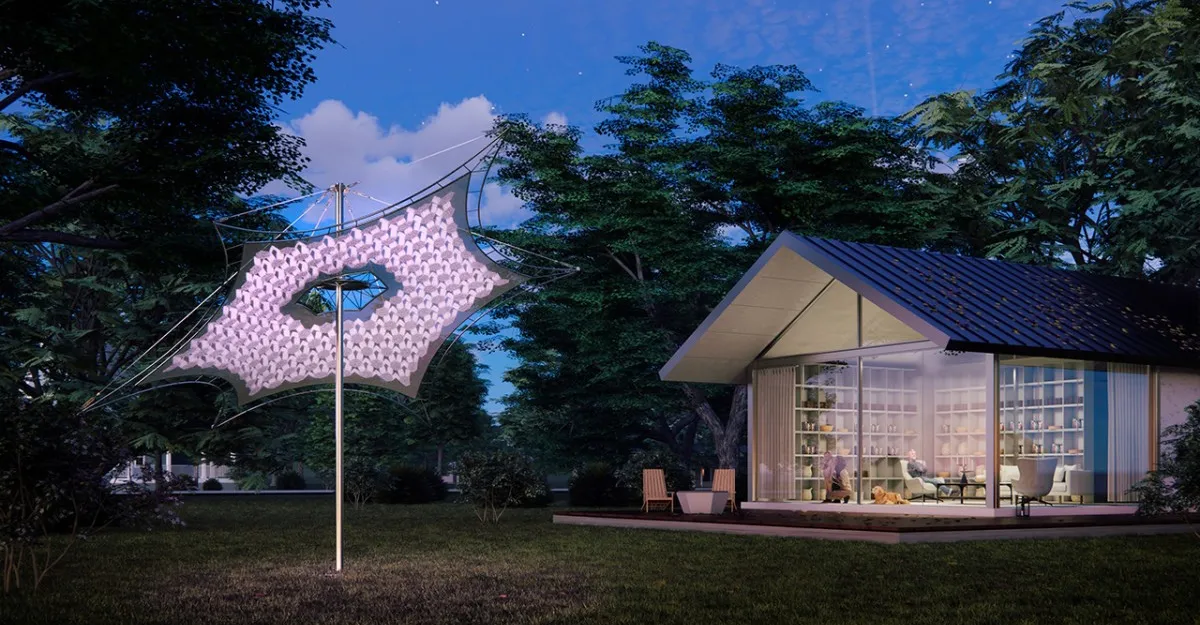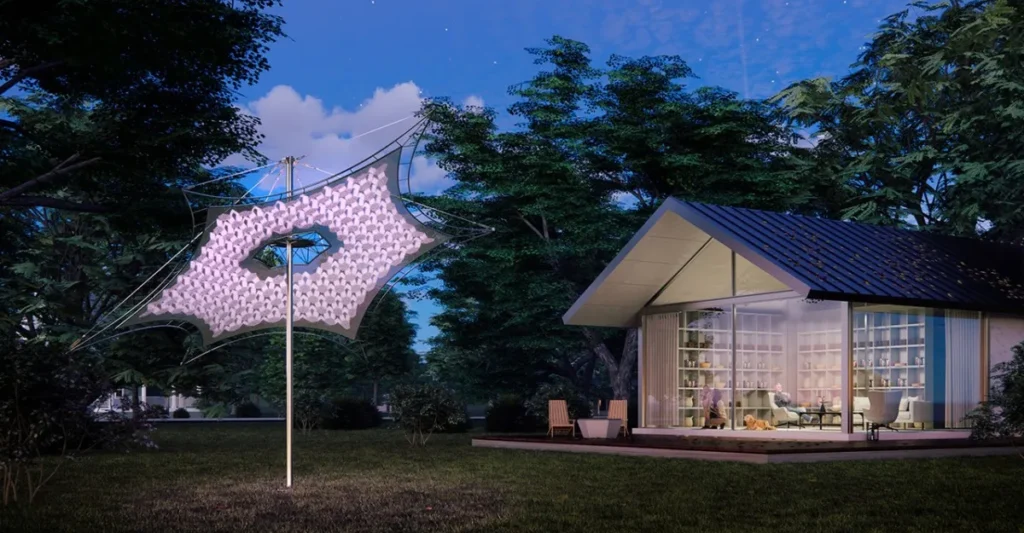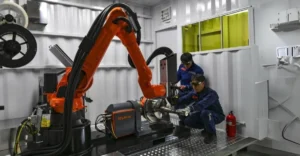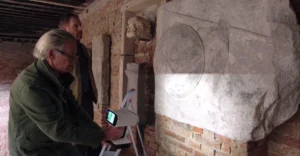Cornell’s HelioSkin project creates adaptive 3D-printed solar panels modeled after plant movement toward sunlight.
Cornell University researchers have launched a groundbreaking project to transform conventional solar panels into adaptive, aesthetically pleasing alternatives that could dramatically increase widespread adoption.
The HelioSkin project, led by Jenny Sabin, professor of architecture, has developed 3D-printed photovoltaic panels as lightweight fabrics that can be wrapped around complex shapes to better absorb sunlight. The panels are designed to mimic heliotropism, the natural process by which plants track and move toward sunlight.
The research team includes physics professor Itai Cohen and plant biology professor Adrienne Roeder, creating a truly interdisciplinary approach. In 2024, the project received $650,000 from the National Science Foundation’s Convergence Accelerator program and has applied for an additional $5 million over three years.
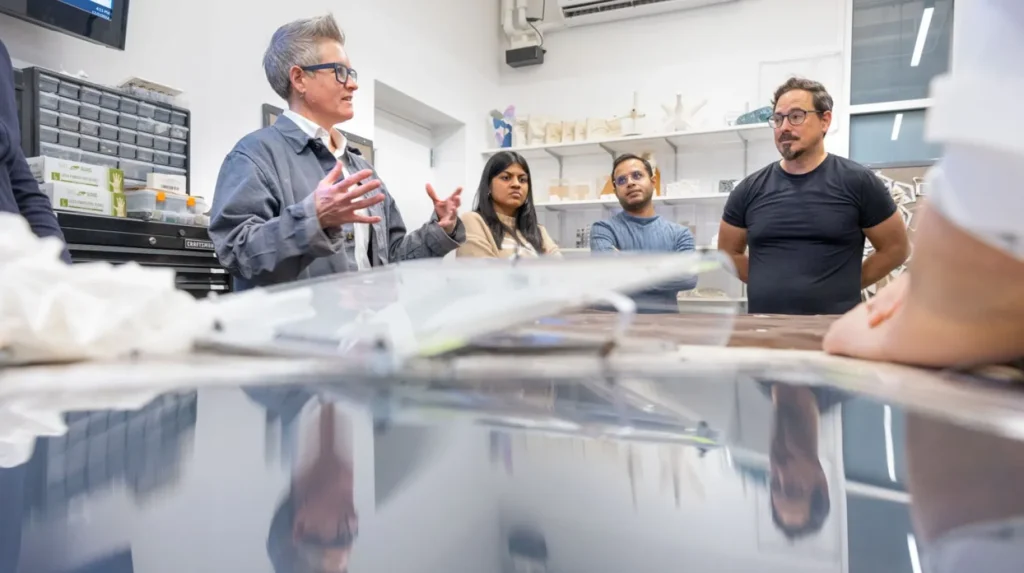
This innovation solves influential environmental challenges. In the United States, buildings are responsible for 40 percent of total greenhouse gas emissions, according to the International Energy Agency. Solar adoption is a way to reduce 28% of CO2 emissions from heating, lighting and cooling.
“Nature is not efficient,” Sabin explained in an interview with the Cornell Chronicle. “It’s resilient, and biology is in it for the long game, over much longer time scales. Additionally, it has been demonstrated that plants that track the sun exhibit a photovoltaic advantage.”
A highly interdisciplinary effort, the research team includes Itai Cohen, a physics professor, and Adrienne Roeder, a plant biology professor. In 2024, the project secured $650,000 from the National Science Foundation’s Convergence Accelerator program and applied for a $5 million grant over three years.
Currently, the project focuses on small solar canopies for backyards, with potential to scale up for urban parks. These structures combine computational design, digital fabrication and 3D printing to create customized photovoltaic assemblies that enhance both light absorption and architectural appeal.
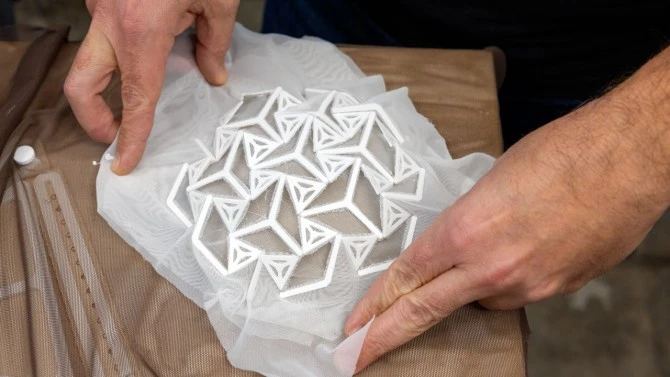
The ultimate vision extends to developing mechanically tracking solar-collection skins for retractable roofs, stadiums and skyscrapers.
“What we’re really passionate about is how the system could not only produce energy in a passive way, but create transformational environments,” Sabin said. “Sustainability is about performance and function, but equally, it’s about beauty and getting people excited about it.”
HelioSkin is on par with similar work from the University of Stuttgart and Freiburg, where scientists created Solar Gate, an energy autonomous façade system that responds to changes in weather. These events demonstrate that adoption of 3D printing with biomimicry for novel renewable energy solutions is a growing trend.


